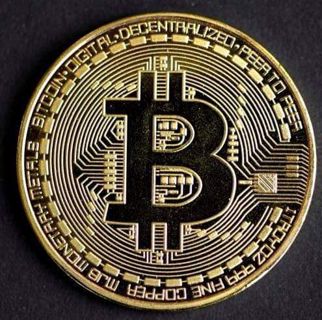
recent years, the world of finance has witnessed a paradigm shift with the emergence of decentralized finance (DeFi) protocols. DeFi represents a revolutionary approach to traditional financial services, offering a borderless, permissionless, and transparent alternative powered by blockchain technology. At the heart of DeFi lies the concept of decentralized trading, which enables users to exchange digital assets without relying on intermediaries like banks or centralized exchanges. In this article, we delve into the world of DeFi trading, exploring its opportunities, challenges, and implications for the future of finance.
Understanding Decentralized Finance (DeFi)
DeFi refers to a broad category of financial applications and protocols built on blockchain networks, primarily Ethereum. These protocols aim to recreate traditional financial services, such as lending, borrowing, trading, and asset management, in a decentralized and trustless manner. Unlike traditional finance, where intermediaries control and oversee transactions, DeFi operates through smart contracts, which are self-executing agreements coded on the blockchain.
The Rise of DeFi Trading Platforms
One of the most significant developments within the DeFi ecosystem is the proliferation of decentralized trading platforms. These platforms, often referred to as decentralized exchanges (DEXs), facilitate peer-to-peer trading of digital assets without the need for intermediaries. Examples of popular DeFi trading platforms include Uniswap, SushiSwap, and PancakeSwap.
Opportunities in DeFi Trading
1. Accessibility:
DeFi trading platforms are accessible to anyone with an internet connection and a digital wallet, democratizing access to financial markets globally.
2. Lower Barriers to Entry:
Unlike traditional finance, which may require extensive documentation and regulatory compliance, DeFi trading platforms typically have lower barriers to entry, allowing users to start trading with minimal friction.
3. Liquidity Pools:
DeFi platforms utilize liquidity pools, where users can contribute their assets to facilitate trading and earn fees in return. By participating in liquidity provision, traders can earn passive income while contributing to market liquidity.
4. Token Diversity:
DeFi trading offers exposure to a wide range of digital assets beyond mainstream cryptocurrencies like Bitcoin and Ethereum. Users can trade a diverse array of tokens, including governance tokens, synthetic assets, and tokenized securities.
5. Decentralized Governance: Many DeFi protocols feature decentralized governance mechanisms, allowing token holders to participate in decision-making processes. This enables users to have a say in the direction and development of the platform they are trading on.
6. Permissionless Innovation:
DeFi's open-source nature encourages innovation, with developers continuously building new protocols and features to enhance the ecosystem. This fosters a dynamic environment where new trading strategies and opportunities emerge regularly.
Challenges and Risks
1. Smart Contract Risks:
While smart contracts enable automated and trustless transactions, they are not immune to bugs or vulnerabilities. Exploiting vulnerabilities in smart contracts can lead to financial losses for users.
2. Regulatory Uncertainty:
DeFi operates in a rapidly evolving regulatory landscape, with authorities around the world grappling to define its legal status. Regulatory crackdowns or changes could impact the accessibility and legality of DeFi trading platforms.
3. Market Volatility:
DeFi markets can be highly volatile, with prices of digital assets subject to rapid fluctuations. Traders must exercise caution and implement risk management strategies to mitigate potential losses.
4. Impermanent Loss:
Liquidity providers on DeFi platforms are susceptible to impermanent loss, a phenomenon where the value of their assets in the liquidity pool diverges from holding them outright. Traders should carefully consider the trade-offs between providing liquidity and potential losses.
Future Outlook
Despite the challenges and risks, the future of DeFi trading appears promising. As the ecosystem continues to mature, we can expect to see:
- Increased Adoption:
Growing awareness and accessibility will drive broader adoption of DeFi trading among retail and institutional investors alike.
- Interoperability:
Interoperability between different DeFi protocols and blockchain networks will enable seamless asset transfers and trading across ecosystems.
- Regulatory Clarity:
Regulatory clarity will be crucial for fostering mainstream adoption and investor confidence in DeFi trading platforms.
- Innovation:
Ctontinued innovation and development will lead to the emergence of new DeFi trading protocols, products, and services, further expanding the possibilities within the ecosystem.
Conclusion :
In conclusion, DeFi trading represents a transformative force in the financial landscape, offering unprecedented opportunities for users to engage in decentralized, permissionless trading of digital assets. While challenges and risks persist, the potential for innovation, accessibility, and financial inclusion makes DeFi trading a compelling avenue for investors seeking exposure to the future of finance. As the ecosystem evolves, staying informed and exercising caution will be paramount for navigating the dynamic world of DeFi trading.
0 件のコメント
この投稿にコメントしよう!
この投稿にはまだコメントがありません。
ぜひあなたの声を聞かせてください。
